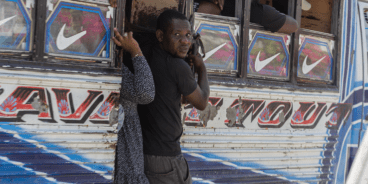
Atrocity Alert No. 110: Central African Republic, Cameroon and Nicaragua
Atrocity Alert is a weekly publication by the Global Centre for the Responsibility to Protect highlighting situations where populations are at risk of, or are enduring, mass atrocity crimes.
More UN peacekeepers killed while protecting civilians in Central African Republic (CAR)
Attacks on peacekeepers from the UN Mission in CAR (MINUSCA) have left two dead and at least seven wounded. On Sunday, 3 June, one peacekeeper was killed by armed gunmen while patrolling in the village of Dilapoko, in the west of the country. The following Sunday, 10 June, another peacekeeper was killed during clashes in the city of Bambari, central CAR. The latest attack was allegedly carried out by the Union pour la Paix en Centrafrique, an armed group which recently caused large-scale destruction and civilian displacement in Bambari.
In recent months conflict between rival armed groups in CAR has intensified and spread, affecting areas which have previously been considered relatively peaceful and stable. Predatory armed groups currently control more than 70 percent of the country. Ongoing violence between these groups has contributed to the internal displacement of almost 690,000 people, while more than 575,000 Central Africans have sought refuge in neighboring countries. Dozens of civilians have been killed by armed groups so far this year.
With violence against civilians growing, deadly attacks on UN peacekeepers have also become increasingly common. Such attacks may constitute a war crime under international law.
In 2017 fifteen peacekeepers were killed in CAR. Since January this year five peacekeepers have already been killed in targeted attacks, making MINUSCA one of the deadliest peacekeeping missions in the world. Although the UN Security Council authorized an additional 900 troops in November 2017 in an effort to enhance MINUSCA’s ability to uphold its civilian protection mandate, these troops have still not been deployed.
The disarmament and demobilization of all armed groups in CAR remains essential. The government, together with MINUSCA, must ensure the swift investigation and prosecution of all perpetrators of mass atrocity crimes, including attacks on UN peacekeepers. The Special Criminal Court should formally investigate all war crimes and crimes against humanity committed in CAR since the outbreak of conflict in 2012.
Language, identity and the growing risk of atrocities in Cameroon
Violence between the security forces and armed separatists in Cameroon continues to escalate, increasing the risk of potential mass atrocity crimes. On 26 May the bodies of at least 29 people, including children, were discovered in the town of Menka in the northwest of the country, highlighting the increasingly violent and insecure environment within Cameroon’s Anglophone regions.
Peaceful demonstrations over the alleged marginalization of Cameroon’s English-speaking minority began in 2016. According to an Amnesty International report released on 11 June, government forces used live ammunition against protesters, arbitrarily arrested and tortured detainees, and have destroyed a number of villages in the restive Anglophone regions. In response, armed Anglophone separatists have killed at least 44 military personnel, burned down schools and attacked teachers for not participating in a separatist boycott. Over 20,000 Cameroonians have fled to neighboring Nigeria.
In order to prevent any further armed conflict and address the growing threat of potential mass atrocity crimes, the government of Cameroon should immediately initiate a dialogue with Anglophone community leaders and constructively address the historic grievances of the English-speaking minority. The government must also ensure that the universal right to freedom of expression and assembly are respected. The security forces must end the use of disproportionate and deadly force against peaceful demonstrators and ensure that the human rights of all Cameroonians are protected, regardless of language or identity.
All perpetrators of grave human rights abuses in Cameroon, including members of armed separatist groups and the military, must be held accountable for their actions.
180 dead as protests continue in Nicaragua
At least 180 people have been killed and over 1,500 wounded since mass anti-government demonstrations began in Nicaragua on 18 April, with the vast majority of deaths caused by the security forces and pro-government militias. The protests began in response to proposed changes by President Daniel Ortega to the national social security system. The intensity of street demonstrations then increased due to outrage over the disproportionate and deadly use of force by police against protesters and the failure of the government to hold those responsible accountable. The security forces have used live ammunition against civilians, including the alleged use of snipers, as well as abducted and “disappeared” some protesters. Some protests against the security forces have also become increasingly violent.
Despite the commitment to a formal truce and political dialogue between the government and opposition on 15 June, six members of a pro-opposition family, including two children, were killed in an arson attack the following day. On 19 June the dialogue, mediated by the Catholic Church, was suspended due to the failure of the government to invite representatives of the Inter-American Commission on Human Rights, the UN High Commissioner for Human Rights and the European Union, as previously agreed. On Tuesday, 19 June, three more people were killed in the town of Masaya as the security forces launched an offensive to clear barricades from the streets.
There is a growing risk of potential mass atrocity crimes in Nicaragua as the government appears unwilling to end the use of disproportionate and deadly force by the security forces against civilian protestors. The government should uphold its primary responsibility to protect all Nicaraguans by meaningfully engaging with the Catholic Church-led mediation process, de-escalating political tensions, and facilitating the creation of an independent mechanism to investigate all alleged grave violations and abuses of human rights.
Related Publications


Atrocity Alert No. 439: Haiti, Central African Republic and Israel and the Occupied Palestinian Territory
